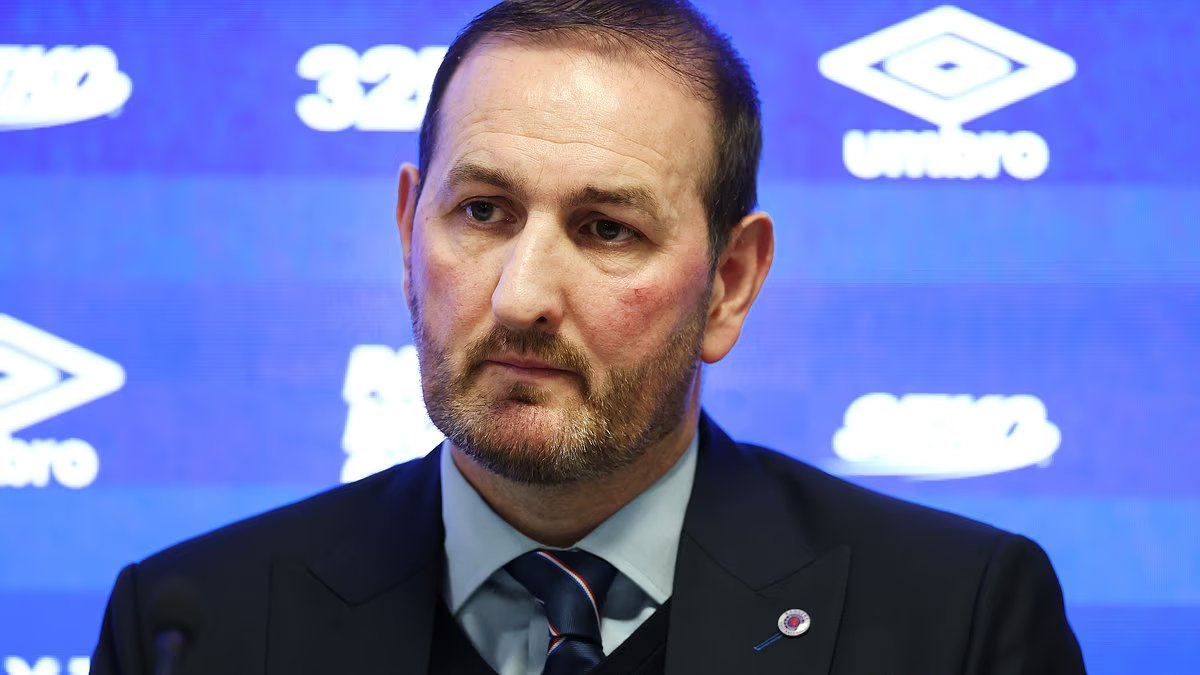Thelwell insists he was ‘transparent’ and had Rangers board backing about appointment of his son

Rangers Sporting Director Defends Son’s Controversial Appointment
In the midst of a challenging season for Rangers Football Club, sporting director Kevin Thelwell has found himself addressing criticism over what many supporters view as nepotism. Thelwell recently defended his decision to appoint his 26-year-old son Robbie as the club’s head of recruitment, a move that has intensified fan discontent following Rangers’ poor start to the season and the subsequent dismissal of manager Russell Martin. The appointment has raised eyebrows across Scottish football, with many questioning whether familial connections played a more significant role than merit. Thelwell acknowledged the optical challenges of the appointment but maintains that proper procedures were followed and that the decision had full backing from the club’s leadership team, including chief executive Patrick Stewart, chairman Andrew Cavanagh, and vice-chairman Paraag Marathe.
Despite the controversy, Thelwell stands firmly behind his son’s qualifications for the position. “My view on Robbie’s career, Robbie’s situation, is he doesn’t need my help in football,” the sporting director stated, highlighting his son’s previous experience as a senior scout at Aston Villa before progressing to head of scouting and later players pathways manager at Norwich City. Perhaps most compelling in Thelwell’s defense is his claim that Robbie was in high demand before joining Rangers, with two unnamed Premier League clubs reportedly interested in securing his services. The elder Thelwell specifically mentioned that Rangers’ current technical director, Dan Purdy, had previously attempted to recruit Robbie while at Everton – an opportunity the father had discouraged his son from pursuing at that earlier stage of his career.
The timing of the appointment has particularly troubled Rangers supporters, coming as it did during a period of on-field struggles that ultimately led to managerial change. The perception of favoritism has been difficult for both father and son to navigate, with Kevin admitting, “It’s always uncomfortable to hear that.” However, he emphasized that transparency was prioritized throughout the hiring process. “Optically, we all agreed when we took the step to appoint Robbie that he was going to be seen in a particular way,” Thelwell acknowledged, demonstrating awareness of how the decision might be perceived by the club’s passionate fanbase. This recognition of potential concerns appears to have informed the approach to Robbie’s hiring, with the sporting director insisting his son faced more scrutiny than typical candidates.
According to the senior Thelwell, Robbie’s path to Rangers was anything but an easy handover between father and son. “I think Robbie probably went through a more rigorous process than probably anybody else who’s employed by this football club,” he stated, suggesting that the club took extra steps to ensure the appointment could withstand scrutiny. The involvement of Purdy seems central to Thelwell’s defense, as he repeatedly emphasized the technical director’s desire to work with Robbie based on previous professional interactions rather than family connections. This working relationship appears to be a cornerstone of how Rangers’ recruitment department is now structured, with Thelwell noting that “him and Dan work very closely together, and work very well together.”
The controversy highlights broader questions about governance and hiring practices in football, where close-knit networks and relationships often influence appointments at all levels. While nepotism accusations are not uncommon in the sport, the visibility of this particular appointment – coming at one of Scotland’s most storied clubs during a period of underperformance – has amplified the scrutiny. Rangers supporters, already frustrated by disappointing results, have viewed the hiring with particular skepticism. For a club with Rangers’ history and ambitions, any perception that decisions are being made for reasons other than pursuing excellence on the pitch inevitably creates tension with a fanbase that expects the highest standards.
Looking forward, both Thelwells now face the challenge of proving that this appointment was indeed made on merit. The elder Thelwell expressed confidence in his son’s dedication to succeeding in the role, stating: “What I do know is that he will work 25-8 to be successful in this football club,” using the exaggerated timeframe to emphasize Robbie’s expected work ethic. The sporting director concluded by saying he looks forward to Robbie “proving that he’s going to be an excellent employee for Rangers” – an acknowledgment that ultimately, results and performance in the recruitment department will be the true measure of whether this controversial appointment was justified. For Rangers fans, the proof will be in the quality of players brought to Ibrox under Robbie Thelwell’s watch and whether the club can return to challenging for honors in Scottish football.








